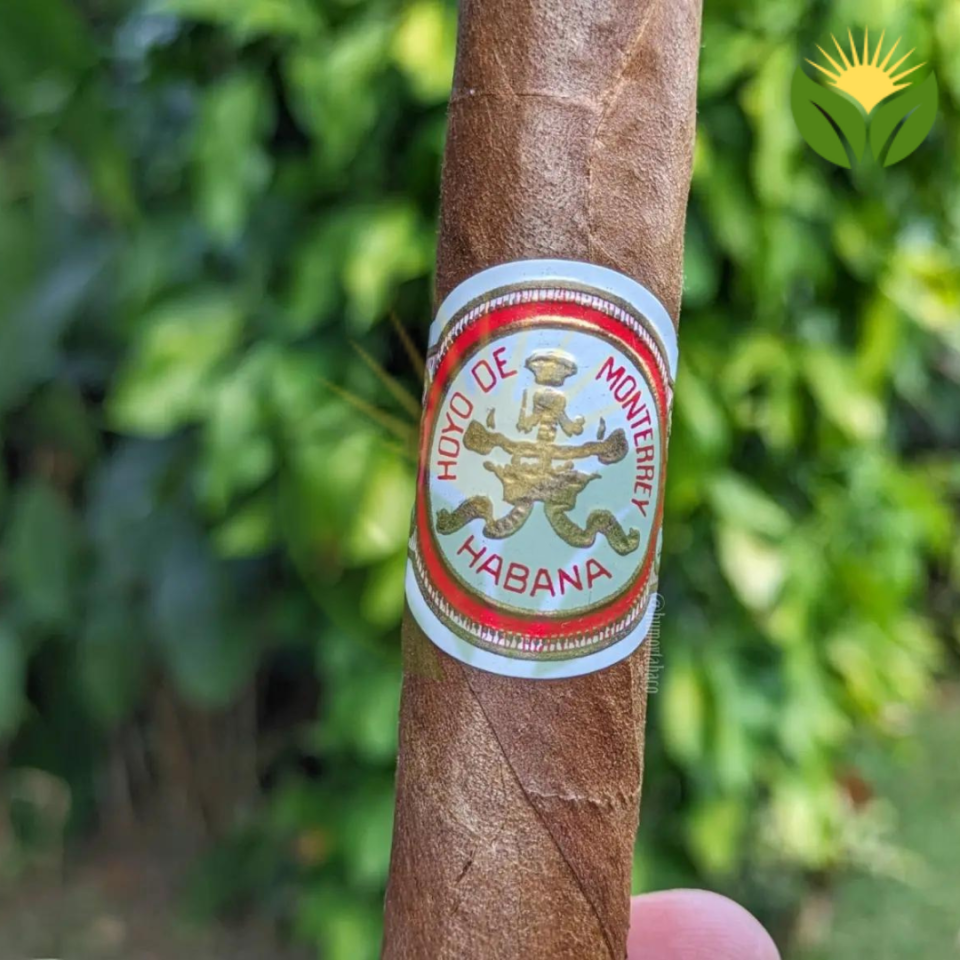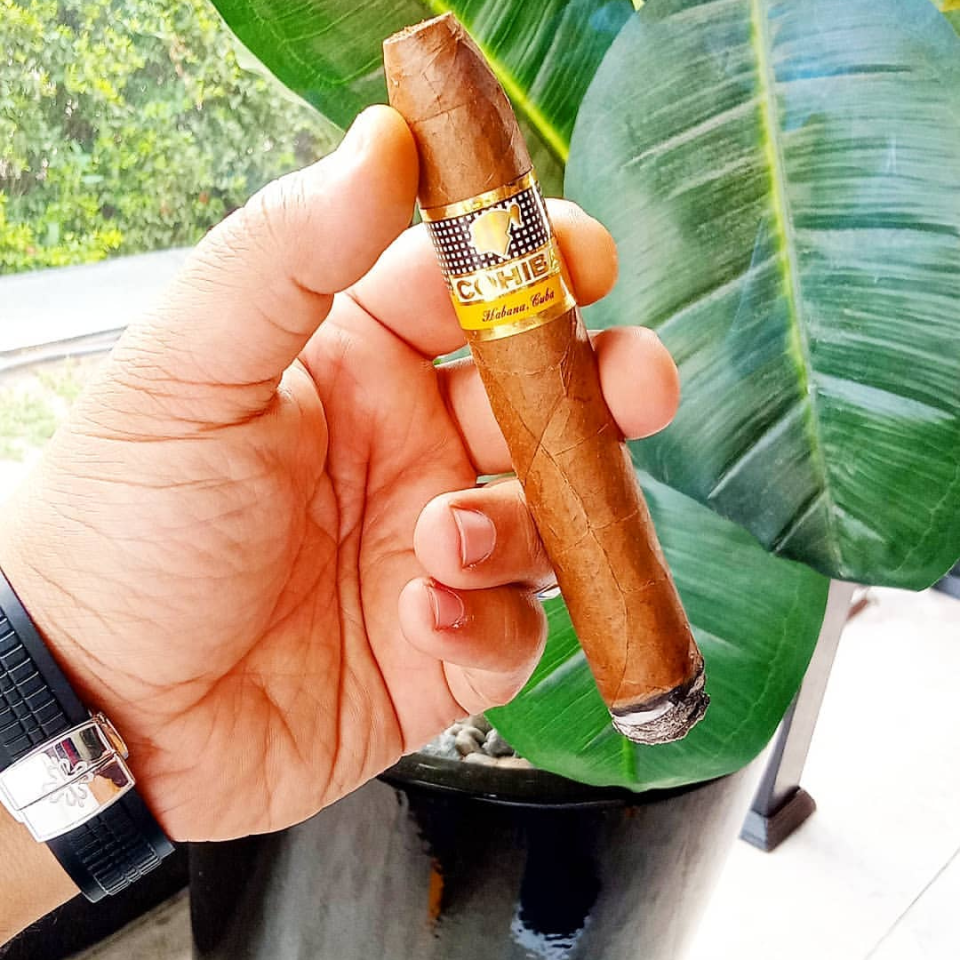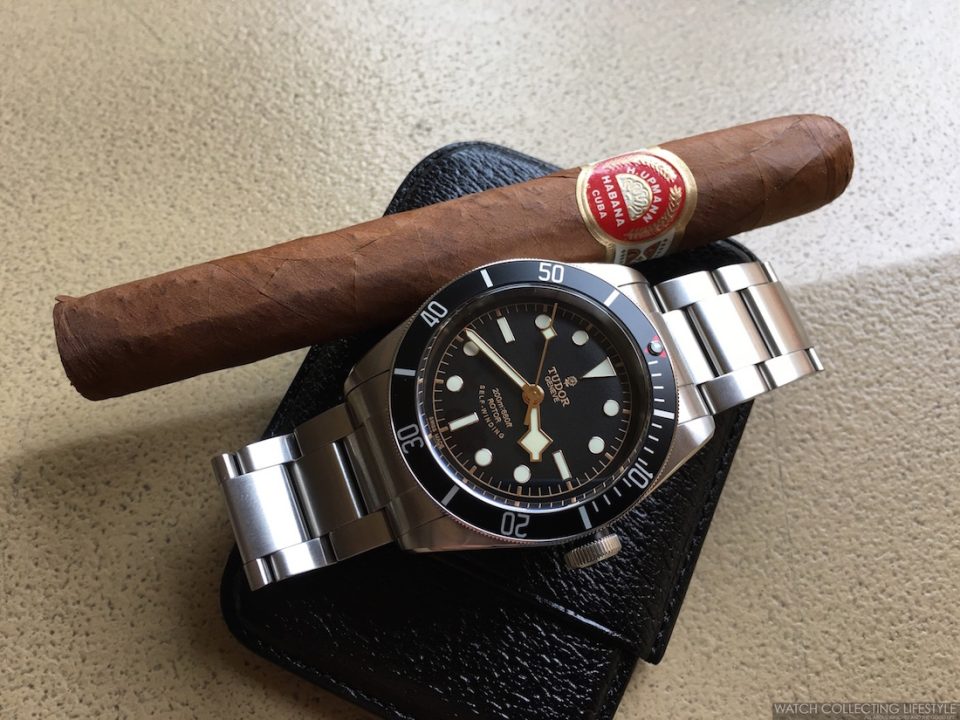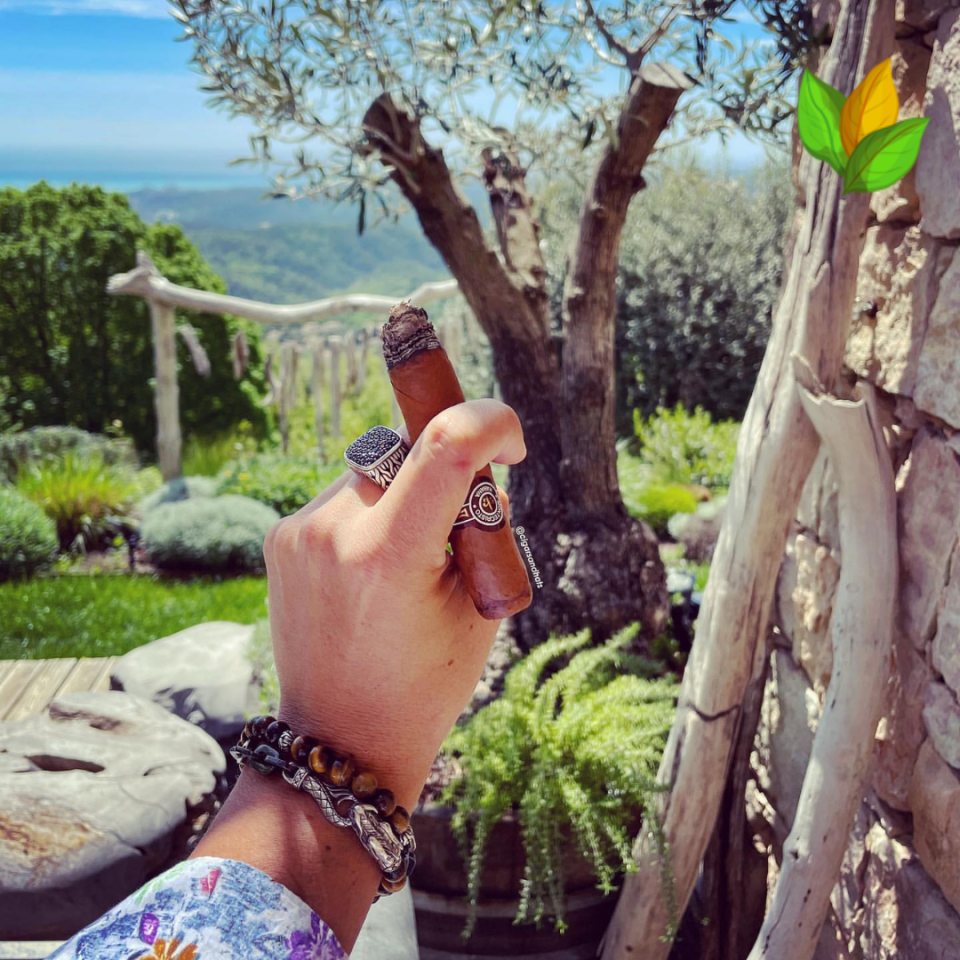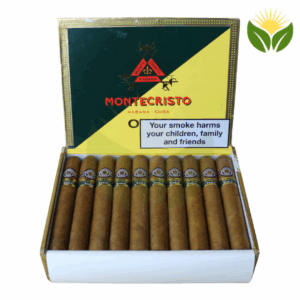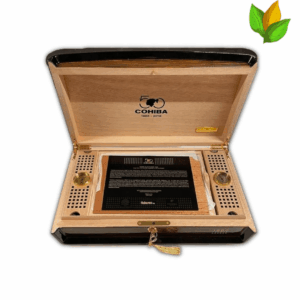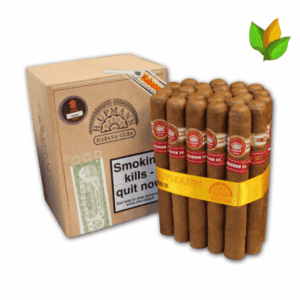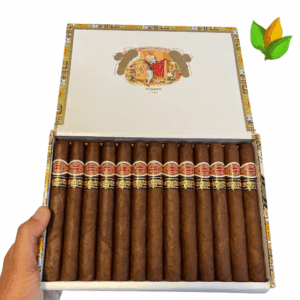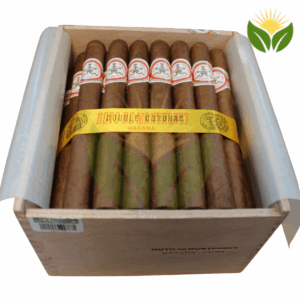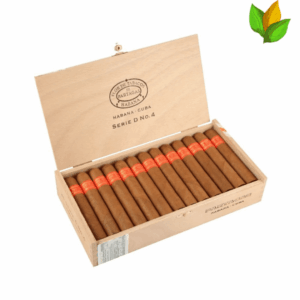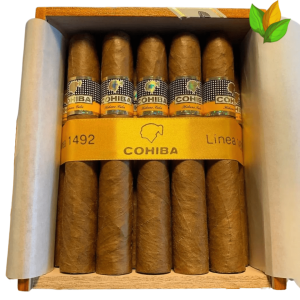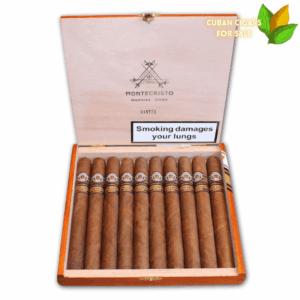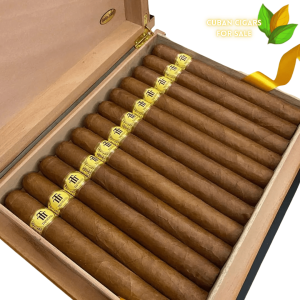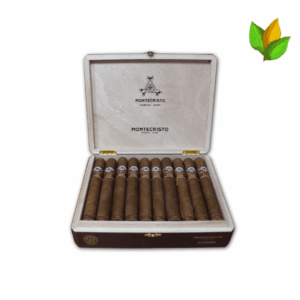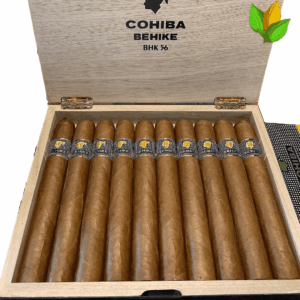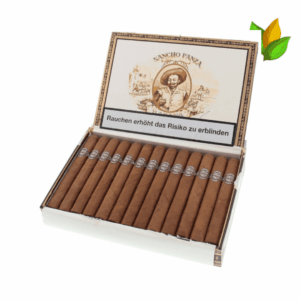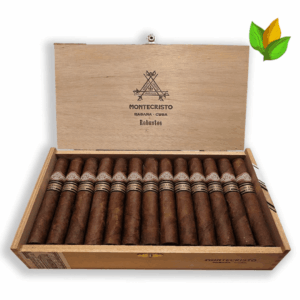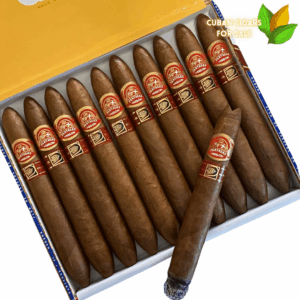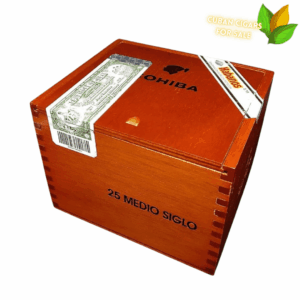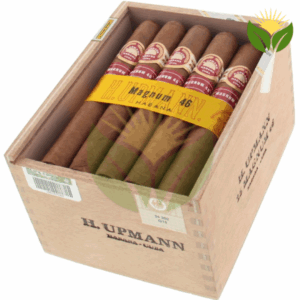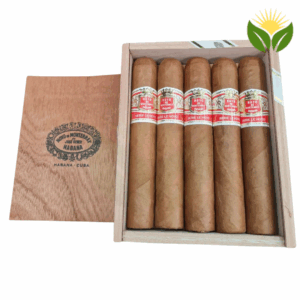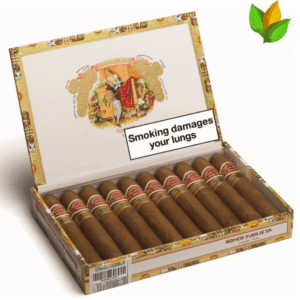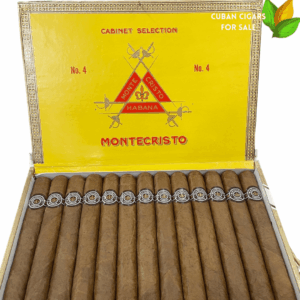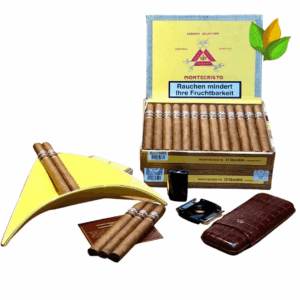The History of H. Upmann Cigars – From Cuba to the World
Welcome to our comprehensive guide about Upmann Cuban cigars. In this article, we’ll explore everything you need to know about Upmann Cuban cigars, from selection and storage to appreciation and enjoyment. Whether you’re a seasoned aficionado or new to the world of Upmann Cuban cigars, this guide provides valuable insights and expert knowledge.
Table of Contents
- Introduction to Upmann Cuban cigars
- History and Heritage
- How to Select Upmann Cuban cigars
- Storage and Aging
- Enjoying Your Upmann Cuban cigars
- Frequently Asked Questions
History unfolds a captivating narrative of H. Upmann Cigars, a brand deeply rooted in Cuba’s rich tobacco heritage. From its inception in 1844 by Hermann Upmann, these cigars have traversed time and borders, establishing a legacy renowned worldwide. Delve into the intriguing journey of H. Upmann Cigars, from the warm embrace of Cuban fields to aficionados across the globe, in this detailed account of their historical significance. For more in-depth insight, visit History of H. Upmann Cigars.
The Genesis of H. Upmann Cigars for Upmann Cuban cigars
The Upmann Brothers and Banking Origins
Before the iconic H. Upmann cigars were ever rolled, the Upmann brothers, Hermann and August, were respected figures in the banking industry in 19th century Germany. Their expertise in finance would later play a pivotal role in the success of the Upmann brand.
Birth of the Havana Tradition
Any aficionado of premium cigars knows the name H. Upmann, but few are aware of its humble beginnings in 1844 when Herman Upmann Sr. established the company in Havana, Cuba. This marked the birth of a tradition that would redefine the cigar industry.
On the tropical island of Cuba, where cigar-making is elevated to an art form, the Upmann brothers honed their craft and set a standard for excellence that would be synonymous with the H. Upmann name for generations to come. Their dedication to quality and passion for cigars would soon capture the hearts of connoisseurs worldwide.
Tradition
Tradition is at the heart of H. Upmann cigars, with each hand-rolled creation reflecting centuries of expertise and dedication to the art of cigar making. From the fertile tobacco fields of Cuba to the skilled hands of master torcedores, the tradition of H. Upmann cigars continues to embody the essence of luxury and refinement.
Expansion and Reputation for Upmann Cuban cigars
Royal Warrants and International Recognition
The H. Upmann brand gained widespread acclaim, earning royal warrants from European monarchs and international recognition for its exceptional quality and craftsmanship. This prestigious accolade solidified H. Upmann’s reputation as a premium cigar maker and further propelled its expansion into global markets.
Surviving Wars and Economic Shifts
Reputation
Another significant aspect of H. Upmann’s history is its resilience during times of conflict and economic instability. Despite facing challenges such as world wars and economic shifts, the brand managed to endure and even thrive, showcasing its unwavering commitment to quality and tradition. This commitment to excellence has been a cornerstone of H. Upmann’s reputation for generations.
Nationalization and the Cuban Cigar Industry for Upmann Cuban cigars
There’s Best H. Upmann Cigars Brand Guide & Reviews that showcase the evolution of H. Upmann cigars, delving into the nationalization of the Cuban cigar industry. The Cuban Revolution in 1959 led to the government taking control of the country’s cigar factories, including those producing the renowned H. Upmann cigars. This marked a significant turning point for the brand and the entire Cuban cigar industry.
The Cuban Revolution’s Impact
With the rise of Fidel Castro and the subsequent nationalization of industries, including tobacco, the H. Upmann brand, like many others, underwent a transformation. The Cuban government took over production and distribution, shifting the focus from luxury exports to meeting the domestic demand for cigars.
Navigating Global Markets and Embargoes
Global markets play a crucial role in the cigar industry, but navigating them can be challenging, especially with embargoes in place. The embargo imposed by the United States on Cuban goods, including cigars, has limited the availability of Cuban cigars in the US market. This led to Cuban cigar makers exploring opportunities in other countries to keep their brand alive.
Cuban cigar makers have been resilient in navigating these challenges, adapting to changing global markets by establishing partnerships with non-US markets and creating alternative cigar lines to cater to different preferences. Despite the embargoes, H. Upmann continues to be a symbol of excellence and tradition in the cigar world.
H. Upmann in the Modern Era for Upmann Cuban cigars
Innovation and New Blends
Blends at H. Upmann have evolved to meet the tastes of modern cigar enthusiasts. The brand has introduced new blends that incorporate different tobacco varieties and aging techniques, resulting in unique flavor profiles that appeal to a broader audience while still maintaining the essence of the H. Upmann legacy.
Maintaining Tradition in a Changing World
For H. Upmann, tradition is not simply about looking to the past but about honoring the craftsmanship and dedication that have defined the brand for centuries. Despite the changing landscape of the cigar industry, H. Upmann has stayed true to its roots, continuing to produce cigars that embody the heritage and quality that aficionados have come to expect.
Maintaining the traditional methods of hand-rolling cigars and aging tobacco leaves is paramount to H. Upmann’s commitment to excellence. The brand’s adherence to time-honored techniques ensures that each cigar delivers a consistent and superior smoking experience that pays homage to its Cuban origins.
Summing up for Upmann Cuban cigars
To wrap up, the history of H. Upmann cigars is a rich tapestry that traces back to Cuba and has since expanded to become a renowned brand worldwide. Through generations of craftsmanship and dedication to quality, H. Upmann has solidified its place in the cigar industry. From the iconic Churchill size to the innovative use of cedar lining in their boxes, H. Upmann continues to innovate and captivate cigar aficionados around the globe. As one of the oldest and most respected names in the business, H. Upmann’s legacy is a testament to the enduring appeal of premium cigars and the artistry of their creation.
FAQ for Upmann Cuban cigars
Q: What is the history of H. Upmann cigars?
A: H. Upmann cigars have a rich history dating back to 1844 when Herman Upmann, a banker from Germany, established the brand in Havana, Cuba.
Q: How did H. Upmann cigars become popular worldwide?
A: H. Upmann cigars gained international acclaim when they were awarded gold medals in seven international exhibitions between 1862 and 1893, solidifying their reputation for quality and craftsmanship.
Q: What sets H. Upmann cigars apart from other cigar brands?
A: H. Upmann cigars are known for their medium-bodied flavor profile and use of high-quality tobacco sourced from the Vuelta Abajo region in Cuba, giving them a distinct and unique taste.
Q: Are H. Upmann cigars still produced in Cuba?
A: Yes, H. Upmann cigars are still produced in Cuba by Habanos S.A., the Cuban state-owned tobacco company, using traditional techniques that have been passed down through generations of master cigar rollers.
Q: How has H. Upmann expanded its reach globally?
A: In addition to its Cuban-made cigars, H. Upmann also produces cigars in the Dominican Republic and Honduras, making them more accessible to cigar enthusiasts worldwide while maintaining the brand’s commitment to quality and excellence.
Summary for Upmann Cuban cigars
This article about Upmann Cuban cigars explores the essential aspects that every cigar enthusiast should know. Whether you’re new to Upmann Cuban cigars or a seasoned aficionado, understanding these key points will enhance your appreciation of authentic Cuban cigars.
Related Premium Cuban Cigars for Upmann Cuban cigars
If you’re interested in Upmann Cuban cigars, explore these exceptional Cuban cigars from our collection:
- Partagas Serie P No.2 – Premium authentic Cuban cigars
- Cohiba Siglo III – Premium authentic Cuban cigars
- Montecristo Club 20 – Premium authentic Cuban cigars
Learn More About Cuban Cigars for Upmann Cuban cigars
Expand your knowledge about Upmann Cuban cigars and Cuban cigar culture:
- Read expert reviews at Cigar Aficionado
- Discover cigar history on Wikipedia
- Get industry insights from Halfwheel
Shop Authentic Cuban Cigars for Upmann Cuban cigars
Ready to experience the excellence of Upmann Cuban cigars? Browse our complete collection of authentic Cuban cigars with guaranteed authenticity, optimal storage, and worldwide shipping. Whether you’re seeking specific brands mentioned in this article about Upmann Cuban cigars or exploring new options, we’re your trusted source for genuine Cuban cigars online.
Explore Our Premium Upmann Cuban cigars Collection
Ready to experience authentic Upmann Cuban cigars? Browse our carefully curated selection:
- Cohiba Siglo VI Tubos (15 en Petacas) – Premium authentic Cuban cigars
- Cohiba Siglo VI – Premium authentic Cuban cigars
- Montecristo Shorts – Premium authentic Cuban cigars
- Partagas Serie D No 2 – Premium authentic Cuban cigars
- Cohiba Maduros 5 Genios – Premium authentic Cuban cigars
Related Articles About Upmann Cuban cigars
Continue learning about Upmann Cuban cigars with these informative articles:
- Discovering the Unique Flavor Profile of H. Upmann Cigars
- Montechristo and Monte Christo Cigars – Exploring the Variations in Spelling
- How Far Down Should You Smoke a Cigar?
Expert Resources on Upmann Cuban cigars
Learn more about Upmann Cuban cigars from these authoritative sources:
- Cigar Aficionado – Expert reviews and ratings
- Wikipedia – History of Cuban cigars
- Halfwheel – Industry news and reviews
Start Your Upmann Cuban cigars Journey Today
Now that you’ve learned about Upmann Cuban cigars, it’s time to experience them yourself. Browse our complete collection of authentic Cuban cigars and discover why Upmann Cuban cigars are treasured by aficionados worldwide. With our guarantee of authenticity, expert curation, and worldwide shipping, your perfect Upmann Cuban cigars experience is just a click away.
Remember: Whether you’re new to Upmann Cuban cigars or a seasoned enthusiast, we’re here to help you find the perfect cigars for your taste and occasion. Don’t hesitate to explore our selection and join the ranks of satisfied customers who have made us their trusted source for authentic Upmann Cuban cigars.



